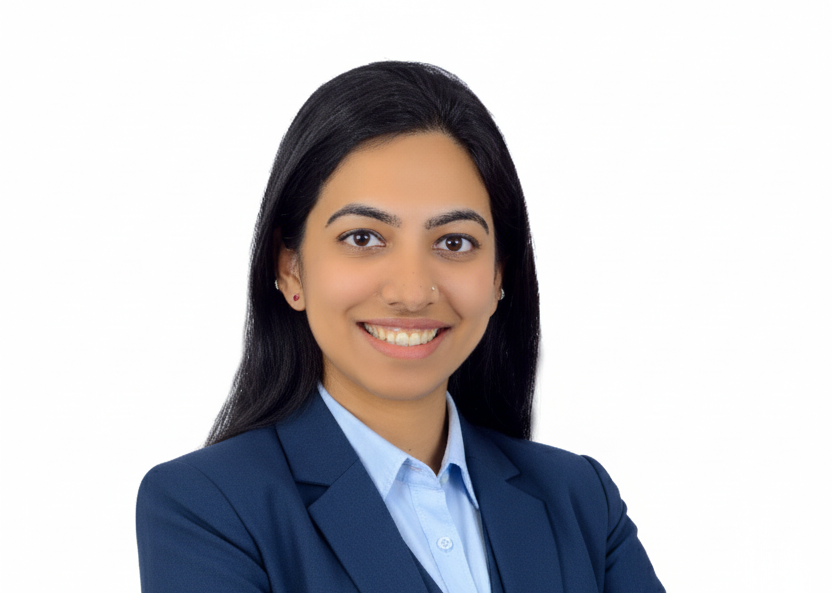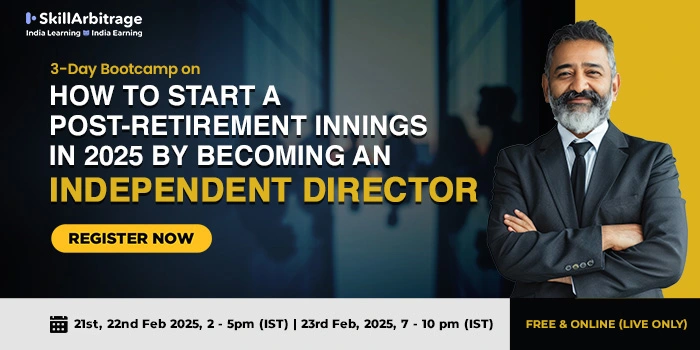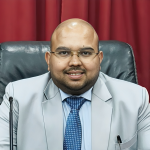This interview has been published by Anshi Mudgal and The SuperLawyer Team
Your academic journey from graduating at the top of your class at NLIU Bhopal to completing the BCL at Oxford on a Chevening Scholarship has been exceptional. How have these contrasting academic environments shaped your legal reasoning and influenced your professional practice?
My graduation at NLIU was an intense five-year trimester. NLIU was heavily student run, and this gave me the confidence to take charge. I was at the helm of co-curricular activities, in addition to academia. It also gave me space to grow as a young law student and have an opinion for the first time on anything contemporary or legal.
NLIU will always feel like home, and I am proud of the strong foundation it gave me, but perhaps it faces the same challenge of the Indian legal education in its narrow/ low focus on independent research and writing. I strongly believe that a system that focuses on application of law and encourages research rather than exams may be better suited for litigation. Part of the problem is a dearth of practitioners as teachers in Indian law schools, unlike med schools. This is extremely relevant for procedural subjects.
So, while I was at the top of my class in NLIU, I found myself at the bottom of my cohort in Oxford. BCL’s perspective on what a good essay should look like was very different from mine. Clarity of thought was given utmost priority. And though this sounds basic, I began viewing the ability to begin with a proposition of law, develop an argument and reason it out, a skill worth developing. Only later I realised this also reflected a good draft of a synopsis of a Special Leave Petition in the Supreme Court. Another area where the BCL broadened my perspective was comparative law. Many cases in the Supreme Court deal with constitutional challenges and look outside the Indian law, such as in anti-discrimination and administrative law.
The time spent by practitioners in teaching full time courses; for instance, Kings Counsels in the UK is also a big advantage. They regularly take out time for closed group discussions with two-three students and give individual attention to each essay. This interaction is truly phenomenal.
One last thing that I continue to reap the benefits of is the Oxford community. My friends at the programme are very dear to me and the university did everything to make this happen. Most of them, who went on to become barristers and solicitors, are still in touch with me and we often share our work experiences in the midst of remembering our time at the university. On the lighter side, the joy of studying in a Hogwarts styled city, with a library at every corner, and the beautifully designed lush green colleges, is simply unparallelled.
Not many people start their litigation career with government practice. How was it working in the chamber of an Additional Standing Counsel at the Delhi High Court, very early in your career?
I worked with Adv. Gautam Narayan (now a designated senior) for about two and a half years, when he was on the Delhi Govt panel. My experience in his chamber was very enriching, yet very demanding. The sheer volume of work one is expected to handle at a government chamber overwhelms you. And dealing with government departments for instructions each day can be very time consuming, with their usual red tape. Few other things that come handy with a government panel is to face constant flak from judges for the slow pace of work, not filing responses promptly etc.
However, often less spoken about, is the ability to drive change and enable relief as a government counsel, which makes the job fulfilling. Not all cases are adversarial and many times the Court asks for assistance from government lawyers to reach authorities and implement orders. Cases on prison reform, bonded labour and environment protection are best examples of this. As part of the chamber, we were able to facilitate good green work in the Delhi Ridge and played a part in implementing the Delhi School Education Act.
I consider myself extremely lucky to find a chamber like this and a boss like him, who taught me two simple yet difficult qualities of grit and discipline, that I carry with me till date.
Having worked with some of the most respected Senior Advocates and been involved in landmark cases, what have been your most formative learnings from chambers practice at the Supreme Court level?
Today, the Supreme Court today is not just a constitutional Court but has taken the colour of a Court of Appeal with over twenty statutes with direct appeals from tribunals. To add to this, the bread and butter of a Supreme Court lawyer are special leave petitions which keep the Court fairly occupied.
I believe, to have a voice in such a busy appellate court, four things are important:
- A good draft is half the battle won.
- A question of law gives you good ground to argue.
- Pointed answers to queries makes the Court’s job easy.
- Integrity goes a long way. Admitting the weakness in your case makes you more amenable to the Court.
Though the Supreme Court largely remains a senior driven court, a young lawyer who can put her point across in a crisp manner, gauge the reaction of the bench and respond accordingly, can do very well.
What motivated you to establish your own practice, and what initial hurdles did you face in doing so? What vision did you have for your independent practice from the outset?
When I left Khaitan in 2018 and moved to litigation, my goal was to become an arguing counsel and have my own chamber someday. The power of a good counsel and her ability to move the bench attracted me. This came from my short stint at the Bombay High Court as part of the Khaitan IP team.
I started litigation in Delhi but struggled with its pace and uncertainty of work. The procedural paraphernalia to filing cases also irritated me as a junior. However, on most good days and some bad days, the goal remained firm. Once I stood at the podium and was able to have a conversation with the judge, I felt powerful. Even thought to myself, this is why I joined law school. I thoroughly enjoyed working in both my previous chambers, but I very much looked forward to arguing my own matters and the choice of going independent seemed inevitable.
In the last couple of years, I began taking up my own work. Initially, the work was sporadic and low paying, but slowly it’s picking up. A big decision was to decide the right time to take up an office space and keep a clerk. As significant recurrent costs for a young lawyer, this is an important decision to make.
I must add that Gopal Sir & Haripriya Ma’am (senior advocates), who I worked with for over three years, have been instrumental in this journey. Not only did they help me with my initial cases, but also gave me opportunities to argue in the Supreme Court, even against senior advocates. Their trust and support in my moments of doubt continues to push me to do better. It also reminds me that someone with similar experiences and struggles came through with flying colours, and so can I. A good mentor is your best resource.
At VIJ Law Offices, your matters span a wide legal spectrum from objecting to claim withdrawals in insolvency proceedings to criminal appeals from convictions and service matters. How do you manage such a diverse caseload, and which case has been the most intellectually or strategically demanding for you?
As a (very) young chamber, I have tried to cultivate a practice with a wide range of civil and criminal cases. Partly, this stems from my exposure in my previous chambers to a comprehensive range of vires challenge, service law, company matters, land acquisition matters, arbitration, you name it. Soon enough, I gained the confidence to build arguments for any new point of law for any new case. Another factor which played a role is the stage of my career. Right now, I feel I should say ‘yes’ to each and every matter, without the worry of being branded a commercial or a criminal lawyer. A jack of all trades might not be a master of none for young lawyers.
In my experience, criminal matters such as appeals from convictions, death sentence and bail, though not the most lucrative, require the most amount of work. Since they affect life and liberty of citizens, I find them the most laborious and emotionally challenging. The most intellectually demanding area, however, remains constitutional law. I have been fortunate to work on a spectrum of constitutional issues spanning from reservation law and parliamentary privileges to abrogation of Article 370. Though the interpretation of the Constitution is similar to a statute, but the basis of challenge of an amendment is entirely different and rests on the basic structure doctrine. The process of understanding the history of our Constitution, discerning the basic structure, and testing a constitutional amendment against it is both invigorating and challenging. Once you’ve done this, you may encounter an entirely different constitutional issue next time, such as the one concerning the CEC appointment – can the Courts fill a vacuum that arises due to inaction by the Parliament under the Constitution?
You’ve contributed actively through writings in The Hindu, Oxford blogs, and the NLUD Journal. What role do you believe legal scholarship plays in shaping both jurisprudence and public understanding/ change of the law?
Immense importance. Writing is thinking, and I wish I had started before. As lawyers, we must acknowledge that articulation is our biggest asset.
As they say, laws are as good as the people implementing them, and lawyers have a big role to play here. With a firsthand experience of how matters are argued, how legislations work and courts interpret them, we can contribute to legal scholarship with our practical experience. Sr. Adv. Datar’s short articles on Article 14 are a great example of clarity and knowledge that comes with experience.
Writing also contributes greatly to drafting a good petition. Though journal publications are more valuable for their in-depth research, writing for newspapers has taught me the art of putting things simply.
The importance of legal scholarship can be seen not only in academic growth but also through a positive change in law. The Supreme Court in Navtej Singh (decriminalising homosexuality) and Lt. Col. Nishtha (permanent commission) was influenced by academic writings on indirect discrimination/ disparate impact and developed this as new dimensions of equality under Art. 14. Any new challenge on discrimination would now examine the disparate impact of a gender neutral provision on a particular group of the society.
Clearing the Advocate-on-Record examination is a commendable feat. What responsibilities accompany this designation, and how has it influenced your litigation strategy and client engagement?
Thank you. On a lighter note, I am very glad about my AOR results because the exam reminded me how difficult it is to sit down with a pen and paper for 3 hours, in the fear of time running out and the possibility of not making it through as a lawyer with 5-6 years of practice. The fear is real!!
In my opinion, an Advocate-on-Record is very valuable, both for the client and the court. Right from the first client interaction, to drafting and filing the petition, reasoning with the registry (the most difficult part) and appearing and arguing in the court, an AOR can be a one stop shop to see a matter through in the Supreme Court. An AOR also holds good ground with the client to suggest which senior counsel should be engaged for which kind of matters. Being an AOR also comes with great responsibility. The court holds an AOR accountable for anything regarding the matter and the party, good or bad. When a senior counsel is unable to appear or reach for a matter, the AOR may be asked to address the Court. So, an AOR can easily be said to be the most important lawyer in the Supreme Court today.
I must add that historically the perception of an AOR was quite different. AORs often filed matters for other lawyers, without being involved in the process. Typically, lawyers who were solicitors and not attuned to arguing in the Court also chose to be AORs. Slowly and steadily this perception is changing.
Being an AOR has certainly contributed to my practice. Clients and fellow lawyers, who may have seen me in Court with my previous bosses, feel confident to approach me directly for new cases. I believe clients also get a sense of satisfaction that ‘one lawyer’ would handle their case till the end.
What advice would you offer to students and young lawyers, given your diverse and global perspective? What resources or habits would you recommend to help them stay sharp and build a well-rounded legal career?
A simple advice would be – trust your gut to choose right and then trust the process.
Today, law has opened many doors for young graduates besides litigation and corporate. More young lawyers are choosing tech, policy, teaching or management roles where a law degree comes handy. One should be free to choose their own path without judgement. When I decided to pursue my LLM, I was told it was a waste of time for litigation and would in fact put me behind my peers. Many corporate firms would also say so and even discount your masters’ experience altogether. Keeping all aside, I decided to pursue the LLM/ BCL in a difficult covid year and would never discount that experience or trade it elsewhere.
Besides, something that has helped me build a well-rounded career has been teaching. I understand it may not be enjoyable for everyone, but a fresh exchange of ideas to a deep dive into law, can open our horizons like no other. Teaching a course on bail this semester has made me realise some fallacies in our system, which I wasn’t privy to or hadn’t given much thought as a lawyer.
Lastly, a piece of advice which is more suited to the legal profession than any other is – to persevere. Whichever path one may choose, the road to a successful lawyer is a long one. While I am still on this road, I’ve realized that I have been able to overcome the difficulties I faced in my career early on. For instance, understanding the court roster, procedure, complex matters, all seemed too alien when I started practicing in 2018. There was an urge to turn to more lucrative opportunities and turn down the sweat and blood of litigation. But perseverance kept me going and hopefully gets me through.
Get in touch with Shivani Vij –





Inspiration journey
Inspiration journey